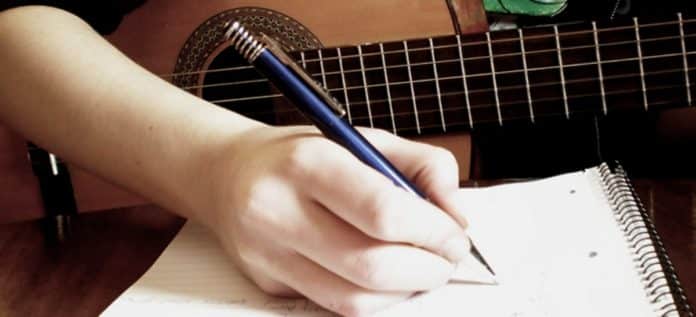
Many aspiring songwriters make a lot of common mistakes when writing songs, which can be put together to form a separate TOP.
Yes, these mistakes are quite common, and they are not distinctive to one author. Whatever genre of music you play, be it country, rock, electronica, or indie-pop, you want your songs to be interesting to your listeners.
Of course, pleasing everyone is impossible, but you should try to minimize the number of mistakes in songwriting to a minimum, if not none at all.
Why is the content of the song so important?
A song is a fundamental part of the activity of any musical group or solo artist. No guru or music theorist can say for sure what will 100% “hook” your listeners, but there are a number of things that you need to pay attention to. These things cannot be ignored, because you will agree that it is better to initially figure out how it all works than to start doing something without having any idea about what you are going to do.
A writing expert, that also provides a “pay for essays” service for students, below tells about the most typical mistakes that many aspiring performers make.
1. Long song
Overly long songs are an obvious mistake that should be avoided at all costs. A person is unlikely to listen to a single musical composition that lasts more than 4-5 minutes – this represents a psychological threshold. The listener should always be engaged, thus long parts can easily turn him off. Always assume that any part that can be made shorter should be made shorter.
2. Weak chorus
When we listen to songs, in most cases the main thing that “catches” us the most is the chorus.
When listening to the music of aspiring artists, it is not always possible to clearly trace the beginning of the chorus after the verse. The chorus should stand out in the song. Differences can be minor: the addition of backing vocals, one or more musical instruments. Or the differences can be more serious: other chords, changing the melody itself with the arrangement.
3. No focus
Aspiring musicians have songs where the transitions from one chord to the next are not clear, and there is no clear focus at all. And this is noticed not by some skilled musicians, but by the average music listener.
As a rule, it is a direct consequence of insufficient work, i.e., “fast-track” songwriting.
4. No bridges
“Bridge” in music is a kind of bridge that connects different parts of songs, creating a logical transition between them.
When you’re listening to a song and you get the feeling that a chorus or another verse is on the way, but you hear something different from the overall composition, it’s almost certainly a bridge.
Its presence allows you to maintain the listener’s attention. With a few exceptions, practically every song has a bridge.
5. Boring arrangement
This problem can happen with different performers, regardless of their experience. This means that the musical composition includes the same set of chords. It occasionally works as an original trick, although this is rare because it is quite boring.
6. No hooks
A hook in music (now we do not mean the classical repertoire) is a part of a musical composition that somehow stands out and is especially liked by the listeners.
7. No dynamics
A good song is always about rhythm and dynamics, rather than a single sound. This creates a sense of “tension” and “discharge” in the song, thus you should always consider the volume level in different parts of the composition when writing a song.
A little bit about the text component
A song is made up of a small number of words and phrases. Every phrase must be double-checked in every detail and contain a certain amount of information.
The fact that the song should be easy to sing and comfortable to listen to is more important than the information in it. Even though the lyrics are fantastic, they may be difficult to sing. A huge number of whistling and hissing sounds at the intersection of syllables, in particular, makes the song difficult to perform.
Here are a few general guidelines that may help with songwriting:
• The stylistics of the text itself must coincide with the general concept of the musical composition. In other words, if the song has lyrical music, a text with comedic connotations is clearly inappropriate.
• There’s no need to stuff the content with too complicated and obscure words. Too complicated sentences are also unnecessary. The listener should not run after the end of the song for a dictionary or google unfamiliar words and phrases.
• The listener should associate himself with the hero of the song. It is not the most obvious point, but it is desirable. And to a greater extent, it is suitable for lyrical compositions, because all of us had an unrequited love, separation, and other life situations.
• You should avoid using phrases like “soul,” “eternity,” “glory,” and “love.” The text should be engaging and fall somewhere between wimpy banality and abstruse tirades.
Of course, songwriting is not some kind of craft that lends itself to clear structuring. This process is more creative, and what doesn’t “work” in a song can come from an original performer who captures the listener’s attention with his emotion and unusualness.
But this is rather an exception to the rule. Nonetheless, knowing what is and is not appropriate in a musical composition is critical. Especially for aspiring musicians who are just beginning their musical journey.









